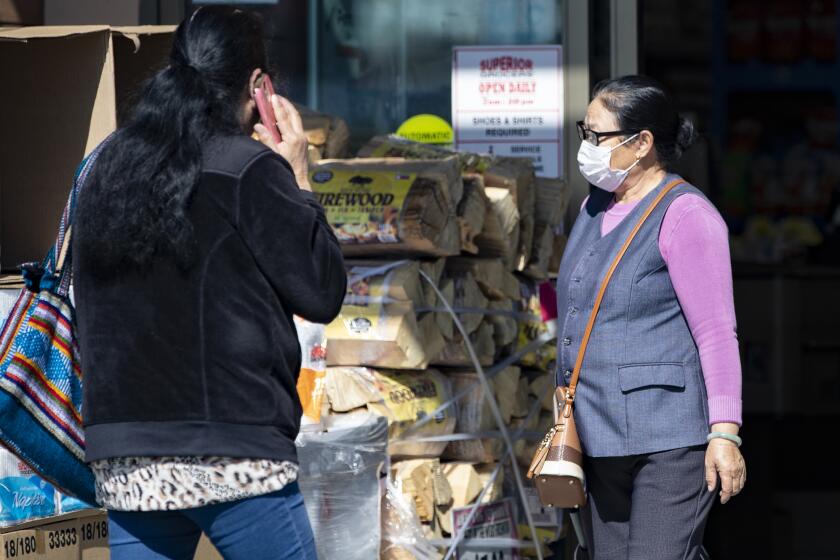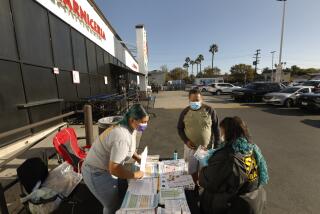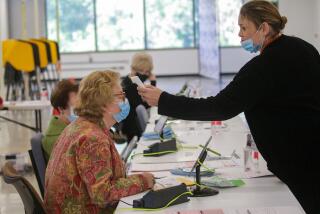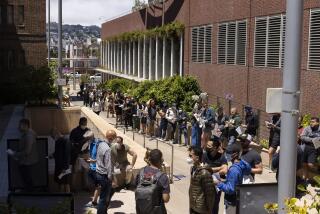San Diego County declares local health emergency to aid coronavirus response
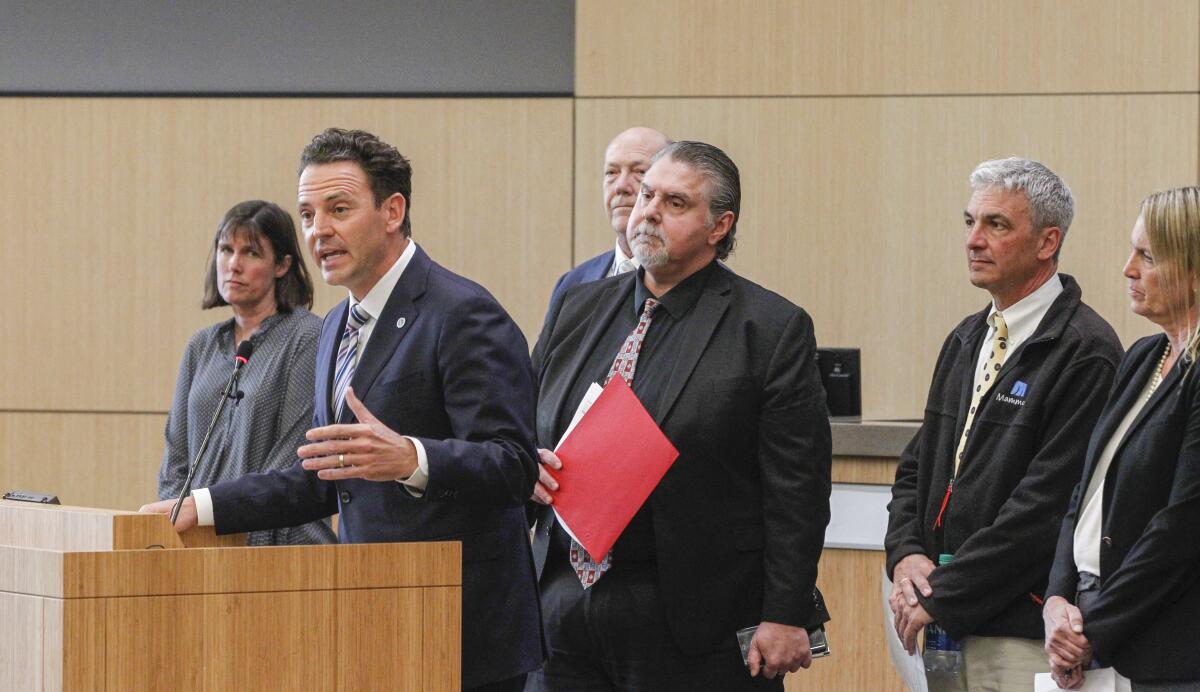
Looking to increase funding for local quarantine operations connected to novel coronavirus, San Diego county public health officials declared health and local emergencies Friday afternoon.
The action, which must be ratified by the county supervisors on Feb. 19, is similar to one taken by the Santa Clara County Board of Supervisors on Feb. 3 and renewed for an additional 30 days on Feb. 10. If approved, it would help the county seek state reimbursement for examining, testing and following up with people in the community who are at increased risk of corona infection and also make it easier to request help from other government agencies.
County Supervisor Nathan Fletcher emphasized that formally calling the current situation — one in which there is no evidence that the virus is spreading locally — an emergency does not mean anything has changed on the ground. Today, the only two confirmed cases of novel coronavirus, which the medical community has taken to calling COVID-19, are two people who arrived in San Diego last week on evacuation flights out of China and who have been sitting in isolation rooms at UC San Diego Health facilities since they started showing symptoms.
In an area of L.A. with large Asian and Latino populations, reactions to the outbreak are varied.
“To be clear, today’s action does not signify any increase in risk to the residents of San Diego County,” Fletcher said.
It’s not the first time that the county has declared a local health emergency to help it process an infectious disease threat. On Sept. 1, 2017, the county board made a similar declaration during a local hepatitis A outbreak that killed 20 and sickened nearly 600. In that case, the county used additional authority to order the City of San Diego to begin an aggressive street-cleaning effort and direct and fund a massive hepatitis A vaccination effort which saw the outbreak recede within just a few months.
Though the hepatitis outbreak and the current coronavirus situation have an emergency declaration in common, they’re far from the same.
Hepatitis A is vaccine preventable but was spreading throughout the community, bridging from the homeless to intravenous drug users and striking some outside those communities along the way. By comparison, there is no evidence that a single case of novel coronavirus has spread from one person to another in the region.
More to Read
Sign up for Essential California
The most important California stories and recommendations in your inbox every morning.
You may occasionally receive promotional content from the Los Angeles Times.
